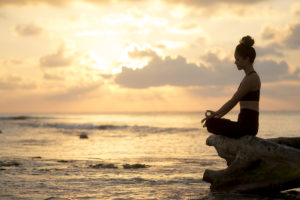“The superior man does not, even for the space of a single meal, act contrary to virtue.” – Confucius
Some background: A very good friend of mine just returned from a three week “Culinary and Photography” travel experience she recently took through Provence, Paris and Nice, France. Eager to show off her both newly acquired French culinary arts and her photographs, she invited me and a few others to taste her new recipes while viewing her photographs.
Now – with a nod to Confucius – I am pretty disciplined when it comes to eating with others. What I did not count on were the overwhelming memories this meal brought back. Before I began my freshman year in college, my aunt and uncle were living in a rented farmhouse in Nice, and I spent three months with them, supposedly bracing myself for the arduous task of teaching English composition and literature to tenth graders but what was actually a three month respite from any responsibility whatsoever.
Fast forward to now: Last Friday night, in this decade, I looked at brimming dishes of Ratatouille, Coq Au Vin, and that quintessential French stew, La Daube Nicoise, and ALL of my inner warnings about nightshade vegetables and other foods (as in cream, duck fat and the list goes on) did not flash their usual alert. I was lost in memories of walking to a daily market under the bluest of skies. As I sipped the Provencal Rose wine and nibbled cheeses spread on warm French bread, I forgot my ban on alcohol, dairy and gluten. I was too busy remembering my aunts’ farmhouse, of how that time at age 20 was the definition of bliss. Later, as we sipped more wine and sampled homemade candied fruit, cookies and cream tarts, we examined beautiful photographs, with every picture throwing me back further in time.
After nearly 5 hours of continual eating and drinking, I made it home and fell into bed, thinking two simple thoughts: first, Lisa’s trip was indeed a success and second, I loved my 20’s!
However, Saturday morning arrived very early. The 3 AM alarm was my 67 year old body screaming at me for my lapse in judgement and cruelly reminding me just how far I was from my twenties. As I reviewed what I consumed – as well as the quantity of what I consumed – my usual calm had left me. Was there anything I could do to bring myself back to me – to atone for an evening of poor judgment and poor choices?
I was physically miserable and quickly on the way to making my mindset a casualty of the previous evening as well.
When you are raised in a conservative Jewish home, you can’t even think of the word “atone” without immediately thinking of fasting. Perhaps fasting was the way out of my current food and drink saturation. Perhaps there were additional herbs to take. Perhaps there were certain foods I should eat; certain herbal teas to drink and certain homeopathic remedies I should take.
Perhaps I should just stay in bed.
I was so busy mentally kicking myself for my gluttony – and so panicked that somehow all that I achieved these past two years would be lost – I forgot I had the answer: Traditional Chinese Medicine.
Margarita Alcantra, M.S.Ac., writes that while “it is important to hold a certain standard of what we want to achieve, it does very little for our physical, mental and spiritual health to berate ourselves for being human. Our body hears everything we think so one should not be surprised that your thoughts can cause further damage. We feel disconnected and out of touch with our bodies because when we are not kind to ourselves, we disconnect further from who we are.”
I needed to change my internal dialogue before I could do anything. I had to stop the runaway train of thought from “I can’t believe how I have messed up everything I worked so hard for over the past two years” to “I made a mistake.” I had to get out of bed and begin the morning as I have done for the past two years – with a cup of hot water, mixed with cider vinegar and honey.
But, yes – I admit it – I avoided the bathroom scale.
Maureen Cromley L.Ac., writes “that self-esteem is a belief and confidence in your own ability. Self-esteem is important because our sense of worth and self-value affects the way we are and the way we act in the world. Nothing in the way we think escapes the influence of self-esteem. Traditional Chinese Medicine sees the mind, emotions, psyche and physical body as being the whole person and each person to and is part of the Tao, or the Universe. A healthy self-esteem is simply the acceptance of who you are, and the situation you are in.”
It’s somewhat comforting that Asian medicine does not support extremes. “In fact, there appears to be no support for complete fasting at all in Chinese medicine. TCM sees cleansing the body of toxins as a function of vegetable consumption. The classics say, “Grains for energy, meats for strength and vegetables for keeping the body clean.’ If one wants to cleanse oneself of toxins, pushing vegetables is the middle way.”
Natural Health writes that “what sets Chinese philosophical fasting practice apart from Western therapeutic fasting is that it is always practiced with some form of meditation; at the very least, it’s combined with breathing exercises. The intake of pure air is necessary to ensure that internal organs and blood become pure. Additionally, your mind should be relaxed through regulated breathing so that qi can start circulating freely through the entire system. A balanced and free-flowing qi is essential to good health.”
My acupuncturist continually reminds me that I am unique because I listen to what he suggests – who tries to incorporate all that I am told and read into a healthy lifestyle. Truth be told, he also reminds me I am, at times, too hard on myself. While “the morning after” I felt like a total TCM disappointment/failure/fraud, I was determined not to go down that road.
In TCM, digestion is the job of the spleen; “The Spleen’s physical function is our thinking process. The Spleen governs our ability to study, concentrate, and process information. Therefore, the Spleen is needed to digest and process both food and information into something the body can use. You can see this connection in the “food coma” when we have a meal or overeat and then we get tired and mentally sluggish. You can also see it when you have too much worry (considered overthinking in TCM) and your digestive system gets “knotted up” and we get nausea or a stomachache.
The Spleen’s emotional level is also tied to the digestive system. At this level, the Spleen is our ability to meet our needs emotionally to give emotional nourishment and support. We feel comfortable, secure, nourished and supported when our needs are met.”
It was time to take charge; festive gluttony has its drawbacks and I knew what I needed to do.
First, I forgave myself.
Then, I zeroed in on my Spleen – figuring a healthy Spleen would lessen those critical voices in my head.
Throughout the day I ate steamed vegetables with light protein. I took the time to meditate. I drank lot of green tea and even more water. I took my Chinese herbs. I went to my water aerobics class keeping the cardio benefits in mind rather than imagining myself sinking like a boulder to the bottom of the pool. Afterwards, I worked in the garden sweating out more toxins before the usual South Florida afternoon thunderstorms began. And when storms came, I journaled what I had learned:
I am human. I make choices, some good and some that are not. Because of kind and compassionate TCM doctors who are incredible teachers, I have the knowledge to help my body recuperate. They have given me the wisdom to replace negative self-talk with positive self-talk.
One day later, I was able to step on the scale which showed nothing amiss; more importantly, I felt fine.
Gandhi said, “Happiness is when what you think, what you say and what you do are in harmony.” I know I have more work to do; but I believe I can do it.
And that is half of the battle.
Sources:
- http://www.natureandhealth.com.au/health/therapeutic-fasting
- https://ayurshalom.blogspot.com/2010/06/fasting-in-ayurveda-and-chinese.html
- https://www.doctorshealth.com/food-and-nutrition-articles/top-5-fasts-from-chinese-medicine-part 1/
- http://wellitude.com/power-of-energetics-digestion-in-tcm/
- https://www.tcmworld.org/emotion-commotion-how-emotions-affect-our-well-being/
- http://www.liferising.com/know/FAQs/q0.html
- http://alcantaraacupuncture.com/how-forgiving-yourself-is-the-ultimate-form-of-self-love/
- http://www.acupuncturecenterofnj.com/acnj-blog/2015/09/04/chinese-medicine-forgiveness
- www.healthandfitnesstravel.com/advice/topics/how-to-build-your-self-esteem/develop-and-improve-your-self-esteem-maureen-cromey
- http://naturalhealingnews.com/love-yourself-more-by-being-assertive-with-your-dialogue/


